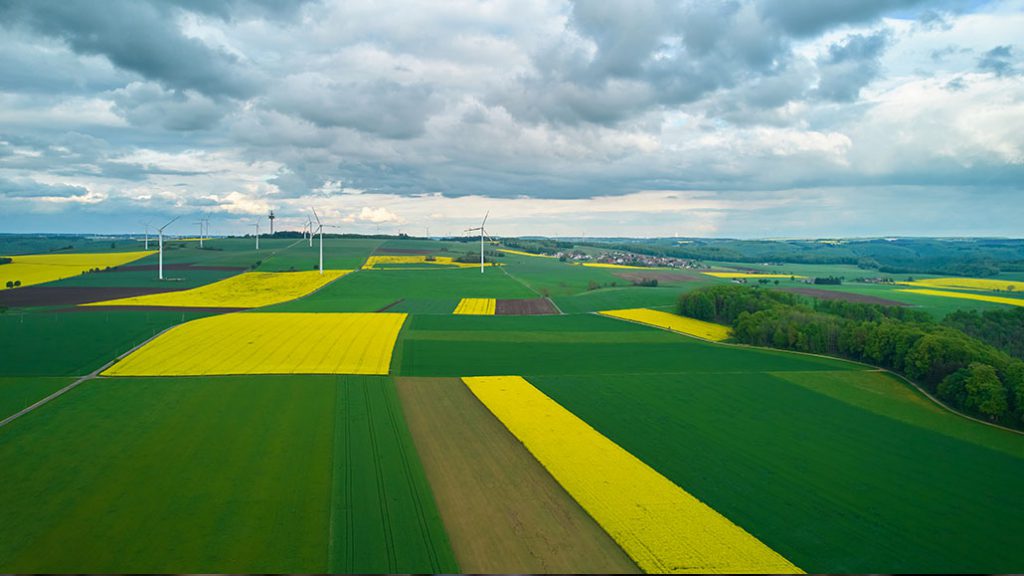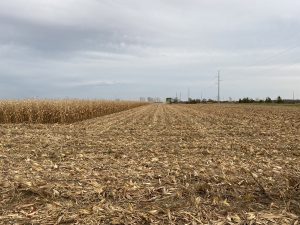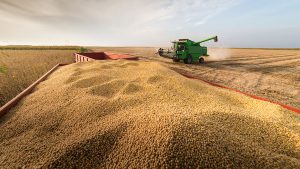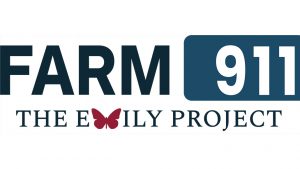Promoting consistent, fair practices
INTERNATIONAL OILSEED PRODUCERS DIALOGUE

EACH YEAR THE International Oilseed Producers Dialogue (IOPD) XXIII brings together oilseed producer groups from across the globe to discuss current events and issues impacting the global oilseed industry, and to foster collaboration and relationships between the groups, working for common good.
Due to the restrictions in place as a result of the global COVID-19 pandemic, the 2021 IOPD the was held virtually. The 2020 meeting had been cancelled due to COVID, and Canada extended its hosting duties from 2020 to 2021, with the Canadian Canola Growers Association (CCGA) and Grain Farmers of Ontario partnering to host.
Despite the virtual format, the 2021 IOPD was no different. Canada, with support from our U.S. counterparts at the U.S. Soybean Export Council (USSED), produced a packed agenda that addressed topics ranging from trade to plant innovation, to the upcoming United Nations (UN) Food System Summit, to climate change policy.
The oilseed industry is constantly shifting with trade pressures, policy, and regulatory pressures, livestock and feed changing needs, demand for bio-fuels, and moving consumer demands, but the IOPD XXIII showed that all countries want fair trade competitiveness, they want science-based regulations from the government, they want global standards on barriers such as maximum residue levels, they want public support for their farmers, and they want to educate each other on their production practices and domestic industry.
Grain Farmers of Ontario and CCGA were joined by representatives from Argentina, Australia, Brazil, England, France, Germany, Paraguay, the United States, and Uruguay. Each country provides updates to the group and this year, there were many common themes. Overwhelmingly, all countries spoke to or referenced a disconnect between their farmers’ sustainability efforts and government regulations and policy around climate change.
PUBLIC DISCONNECT
Almost every country has sustainability programs that aim to showcase the environmental practices in place in oilseed production (and agriculture in general) to help the general public or government understand those practices in an effort to mitigate any negative policies being enforced.
In Germany, the Green Party has seen significant gains over the past decade. Their party members now fill 21 per cent of government seats, up from less than nine per cent.
One of the main concerns out of England was the access to pest management tools and the negative cost of pesticide regulations that led to a high population of cabbage stem flea beetle in 2019 and 2020.
France and Germany both touched on the European Union (EU) Green Deal and how they are now working to incorporate new policy into their farming practices, which in France will include new mandatory conditions for farmers and increased environmental measures – that will remain voluntary for now.
South American countries were concerned by misinformation around clear cutting and land use. In Brazil (Matto Grasso), deforestation has been reduced by more than 10 million square kilometres in the last 15 years. Paraguay also listed the EU Green Deal and impositions of those guidelines into UN Environmental Agreements.
“There is a political mainstream disqualifying farmers’ efforts and ignoring the contribution of modern technology to achieve global food security,” says Sonia Tomassone, foreign trade advisor with Paraguay’s CAPECO (Cámara Paraguaya De Exportadores Y Comercializadores De Cereales Y Oleaginosas).
OILSEED SUPPLY AND DEMAND
Stephen Nicholson, vice president, senior analyst food & agribusiness research, and advisory at Rabo AgriFinance, spoke to IOPD XXIII attendees about the global oilseed market and the continued growth of demand for oilseeds on several fronts: public consumption, bio-fuels, and feed, and whether the production can keep up with demand.
One example he pointed to is the increasing demand for bio-fuels coupled with the decreasing production of palm oil, creating better market opportunities for soybeans, canola, and vegetable oils. The counter side to this will be the impact of increased prices for oilseeds as demand continues to climb, and the need for investment in yield enhancements, or the conversion of acres from other crops to these oilseeds, Nicholson said.
Rabobank data predicts that by 2024 the U.S. expansion of renewable diesel production will require an additional 51 million acres of soybeans, which would be a 59 per cent increase from current planted U.S. acres. Expansion in canola crushing capacity in Canada is a 72 per cent increase and will also result in higher demand and nearly 7.5 million additional acres of canola.
While this means opportunities for farmers will continue to thrive, Nicholson cautions that there are other pieces to this puzzle that need to be considered. Different oilseed crops have different measures for their carbon impact, and indirect land use changes and those variables need to be understood, along with the potential increased demand for plant protein and feed for increased meat consumption and how that will impact acreage available for bio-fuels.
Nicholson also predicted that attractive prices and land availability will continue to drive soybean production growth in Brazil.
FARM TO FORK
One of the key recurring topics linked to the global focus on climate change and the regulatory environment was the EU’s Farm to Fork Strategy. Flora Dewar, trade and agriculture policy manager, and Corrado Finardi, regulatory affairs manager, food and feed safety, from COCERAL, the European association of trade in cereals, oilseeds, pulses, olive oil, oils and fats, animal feed, and agrosupply, provided insights in the Farm To Fork strategy.
The Farm to Fork Strategy is a key element for the EU in achieving the goals of the European Green Deal. The Green Deal, it is hoped, will set up the EU as a global leader in sustainability and create a European climate pact for all member countries.
Through the Green Deal, the EU aims to:
• Become the first carbon neutral continent by 2050
• Become the standard for sustainable agriculture and food systems at a global level
Carbon neutrality will be achieved through initiatives to make energy, transport, and buildings greener and by decreasing emissions – including emissions from agriculture and food production.
The EU will be using the Farm to Fork strategy to become the global standard for food systems and agriculture and other governments are already taking notice, as is the UN, which as noted by Paraguay’s Tomassone, has started imposing Green Deal thinking into its own agreements.
The Farm to Fork strategy includes:
Targets on land area
• Dedicate at lease 10 per cent of land to high density landscape, which includes fallow land, hedges, buffer strips and ponds
• Dedicate 25 per cent of agricultural land to organic farming by 2030
Targets on agricultural inputs
• Reduction of the overall use of chemical pesticides by 50 per cent by 2050
• Reduction of soil nutrient (Nitrogen) losses by at least 50 per cent by 2030
• Reduction of fertilizer use by at least 20 per cent by 2030
And the EU is putting its money where its mouth is on the Green Deal, so to speak, according to Dewar. A new EU common Agricutlure Policy (CAP) will begin in 2023 and will include strategic plans from each Member State of the EU on how they plan to direct CAP funding to the specific Green Deal and Farm to Fork targets, and how their own target commitments will contribute to the overall EU objectives. Of additional interest is that payments will be given to farmers implementing the land area targets.
To achieve the pesticide reduction targets, the Green Deal would see farmers increase integrated pest management practices, reduce use of “candidates for substitution”, increase use of low risk pesticides, and transition to organic.
Finardi explained to the group that one initiative in the EU that could impact the targets is the adoption of New Genomic Techniques (NGT) to contribute to food systems through better disease resistance and climate change effects. They want to see NGTs separated from GMOs as a different way to embrace science and innovation in agriculture.
COCERAL looked at the Farm to Fork strategy and concluded that the EU would become a net importer of grains, and would have to import at least 10 million tonnes of rapeseed to cover consumption, and this shortfall would lead to livestock feed shortages. They also predicted that other countries would have to use up to five times as much land to make up for the losses of the EU grain exports.
UN FOOD SYSTEMS SUMMIT
In September 2021, UN Secretary General, Antonio Guterres, will convene a Food Systems Summit as part of the strategy behind meeting the UN Sustainable Development Goals by 2030. Agnes Kalibata, president of the Alliance for a Green Revolution in Africa (AGRA), is the Special Envoy for the summit. Kalibata will provide strategic direction and act as the liaison between the United Nations and key partners for the Summit, according to Robynne Anderson, president of EmergingAg.
Anderson often represents agricultural organizations at the UN, and co-ordinates a Private Sector Mechanism to the UN Committee on World Food Security and the Food Systems Summit. Anderson joined the IOPD to share insights on the upcoming Food Systems Summit. She noted that the discussion around food systems is shifting from a focus on hunger and malnutrition to the need for transformation in the entire food system.
The five main action tracks that will be focused on throughout the summit and pre-summit are:
- Access to safe, nutritious food for all
- Sustainable consumption
- Nature-positive production
- Livelihoods and Equality
- Resiliency
Each action track has propositions (107 in all) attached to it to provide a framework for member countries to build their voluntary strategies toward more sustainable food systems. Anderson noted that there are several business action areas that will also be discussed more formally, including building a global initiative to address soil health and carbon sequestration, sustainably producing high-quality proteins for all, creating an innovation fund to reduce global food loss; driving crop diversification at scale through products and menus reformulation and consumer awareness raising, and more.
One of the keys to ensuring farmers are heard at the Summit is to come together with a common, unified voice, according to Anderson.
GLOBAL INNOVATION
With so much focus on the environment, sustainability, and the place that agricultural innovation has in production, the IOPD welcomed Szabolcs Rethner, regulatory affairs manager, International Seed Federation, Gord Kurbis, vice-president, trade policy – crop protection, Canada Grains Council, and Graham Brookes, agricultural economist, PG Economics Ltd, to discuss the state of innovation.
Rethner focused on plant breeding innovation and its importance in creating variability and the need for consistent regulations that are science-based and facilitate innovation and collaboration. He noted that agriculture needs to avoid creating another system of patchwork regulations that have contributed to the confusion and grey areas around GMO regulation.
Stakeholders will need to advocate for consistent policies and the groups interested in the future of plant breeding and genetics is growing, so it is vital that producer groups come together before fragmented policies take place.
Kurbis spoke to the IOPD attendees about the increased use of non-tariff measures or barriers, such as maximum residue limits (MRLs), as a mechanism for domestic market protection. According to Kurbis, there is more than $1.1 trillion of agricultural trade in the world today and almost every economy is reliant on trade to fill its food needs.
As increase in farmland plateaus, while population increases, Kurbis noted that market access problems that impact technology are a growing concern. The food system needs to be more resilient to address new pressures from climate change, the spread of invasive species, and more – trade policies need to reduce barriers on the technology we need to meet these new pressures, says Kurbis.
There is, he says, a Codex on MRLs that countries could use, but more and more countries are using their own created MRL lists. In general, many MRL-related trade issues would be solved with more use of international standards for trade, such as the Codex.
Brookes joined the discussion to talk about glyphosate specifically and international bans on this tool. Currently, total use of glyphosate is about 450 – 500 million kg of active ingredient with the benefits of on-farm income gains, improved yield, better weed control, and in some areas allowing a second crop of soybeans after wheat. Brookes listed loss of low till practices, increase in volume of substitute herbicides, increase in soil damage by other herbicides, and increase in GHG emissions from fuel use in application of substitutes as some of the implications of glyphosate bans.
Brookes noted, to the agreement of many attendees, that there is a whiff of hypocrisy in politicians who are favouring non-science-based regulatory approaches for agricultural innovation, but embrace and promote science-based regulations for vaccine development and use.
Each year at the end of the IOPD, the group comes together to create a common message for government communications. In keeping with the theme of the discussions of the day, the IOPD XXIII communique focuses on consistent, fair practices and regulatory environments that will help mitigate some trade issues, and a commitment from governments to embrace science-based decision-making around agriculture – ensuring the sustainability of food production, the sustainability of the earth, and the sustainability of all communities. •


























